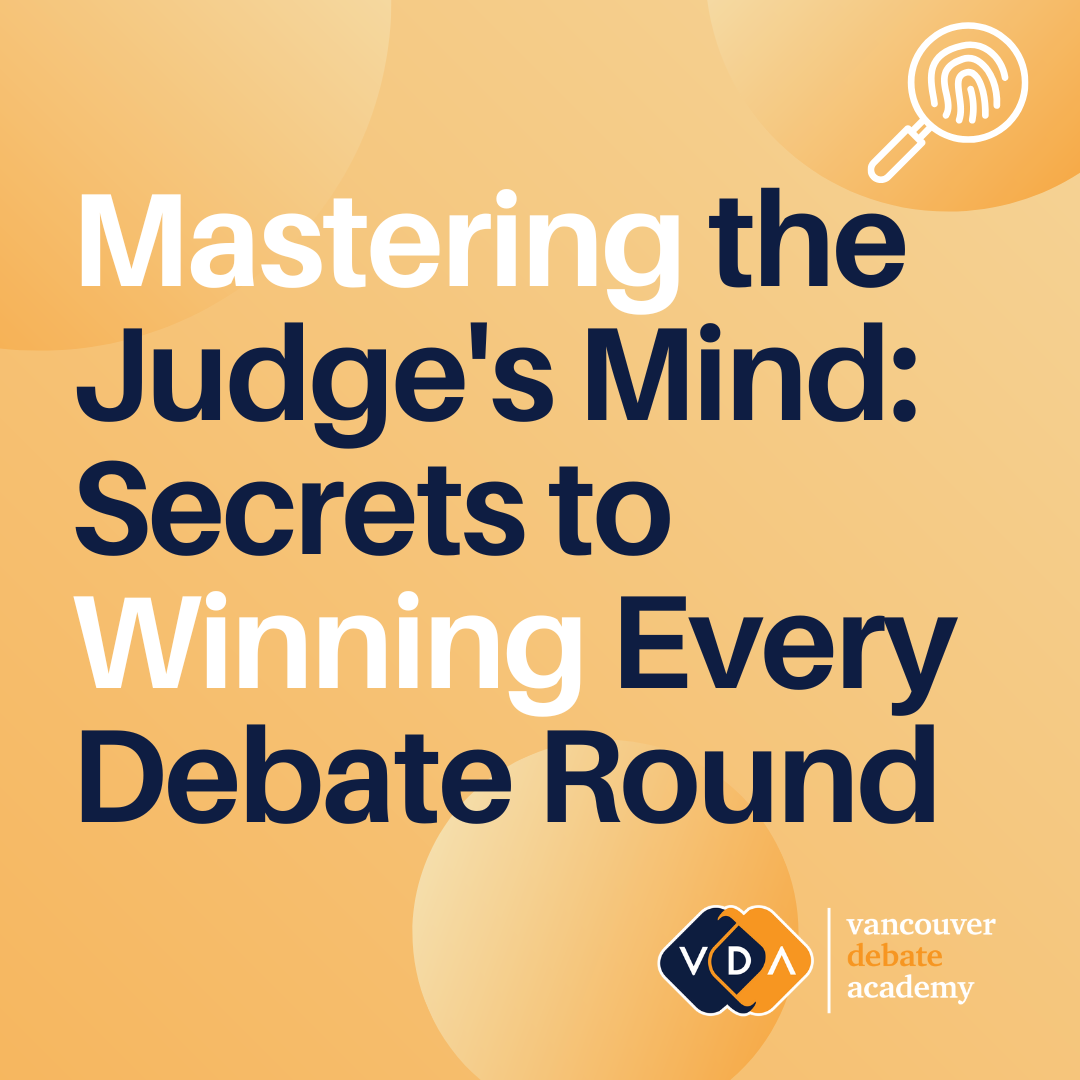Mastering the Judge’s Mind: Secrets to Winning Every Debate Round

In the competitive world of debate, understanding how judges evaluate rounds can significantly enhance your performance. While judges come from diverse backgrounds and may hold different personal preferences, they generally adhere to certain principles when determining the winning team. Recognizing these common criteria allows you to align your strategies in a way that resonates universally, increasing your chances of success regardless of who is judging.

First and foremost, judges value consistency and clarity in how teams meet their burdens of proof. It really helps to clearly define what your team needs to prove to win the debate and maintain that focus throughout. Whether you are defending the motion or refuting it, explicitly outlining your objectives at the beginning helps the judge understand your framework. Consistency in your arguments not only strengthens your case but also makes it easier for the judge to follow and assess your performance. Avoid shifting your burdens or introducing contradictions, as this can confuse the judge and undermine your credibility.
Effective weighing of arguments is another critical aspect that judges pay close attention to. It’s not enough to present strong arguments; you must also explain why your points hold more significance than those of your opponents. This involves providing clear impact analysis, discussing the potential consequences, probabilities, and magnitudes of your arguments. By articulating why your arguments should be prioritized, you assist the judge in understanding the comparative importance of the issues at hand. Judges appreciate when debaters engage in this kind of comparative weighing, as it demonstrates critical thinking and a deep engagement with the debate’s core issues.
Active engagement with your opponents’ arguments is completely necessary. Judges look for debaters who listen attentively and respond directly to the points raised by the other side. This means addressing their strongest arguments rather than sidestepping them or attacking weaker points. By engaging thoughtfully and respectfully, you show the judge that you are not only prepared but also capable of adapting your strategy in real-time. Maintaining consistency and avoiding self-contradictions further reinforces your reliability as a debater.
Rebuttals offer an opportunity to directly challenge your opponents, but they must be executed with care. Judges appreciate rebuttals that accurately assess the impact on the debate without exaggeration. Overstating the significance of a rebuttal can appear disingenuous and may harm your credibility. Instead, focus on linking your rebuttals back to the burdens of proof, demonstrating how they weaken your opponents’ ability to meet their objectives. Quality is more important than quantity; a few well-analyzed rebuttals are more persuasive than numerous superficial ones.
The manner in which you present your arguments—your style and communication—also plays a significant role in how judges perceive your performance. Clarity and persuasiveness are key. Using accessible language and a logical structure helps convey complex ideas effectively. Confidence and engagement in your delivery can enhance the persuasiveness of your analysis, making it more likely that the judge will be swayed by your arguments. Remember that good style is not about flair for its own sake but about facilitating understanding and making your case compelling.
Judges often assess debates from the perspective of the “ordinary intelligent voter,” a hypothetical reasonable person without specialized knowledge or biases. This means they focus on shared values and logical reasoning rather than personal opinions. To align with this perspective, avoid relying on specialized knowledge or cultural references that may not be universally understood. Frame your arguments in terms of universal relevance, appealing to common principles and widely accepted facts. This approach ensures that your case is accessible and persuasive to any judge, regardless of their background.
Debates often involve conflicting frameworks or criteria for judging the motion, and handling these effectively is important. Clearly establishing your team’s framework at the outset provides a foundation for your arguments. Whether you are using a utilitarian approach, a rights-based perspective, or another framework, make it explicit and justify its appropriateness for the debate. If your opponents present a different framework, engage with it critically, showing why your approach leads to better outcomes. This demonstrates depth of analysis and an ability to navigate complex philosophical terrain.
Understanding when and why judges might intervene can help you avoid potential pitfalls. Ensure that your factual claims are accurate and avoid making statements that are widely known to be false. Judges may disregard arguments based on inaccuracies or problematic assertions. Steer clear of denialism or offensive statements, as such arguments can be dismissed or even count against you. Focus on providing robust analysis and building your case without relying on the judge to fill in gaps or correct errors.

In conclusion, while judges may have individual differences, they generally seek well-structured, logically consistent, and persuasively communicated arguments. By focusing on universal principles—such as meeting burdens of proof, engaging directly with opponents, effectively weighing impacts, and presenting your case clearly—you enhance your performance in any debate round. Remember that the goal is to make your arguments resonate with any reasonable judge by being clear, consistent, and compelling. By internalizing these insights, you’ll be better equipped to align your performance with judges’ expectations, increasing your chances of success in debate tournaments.

